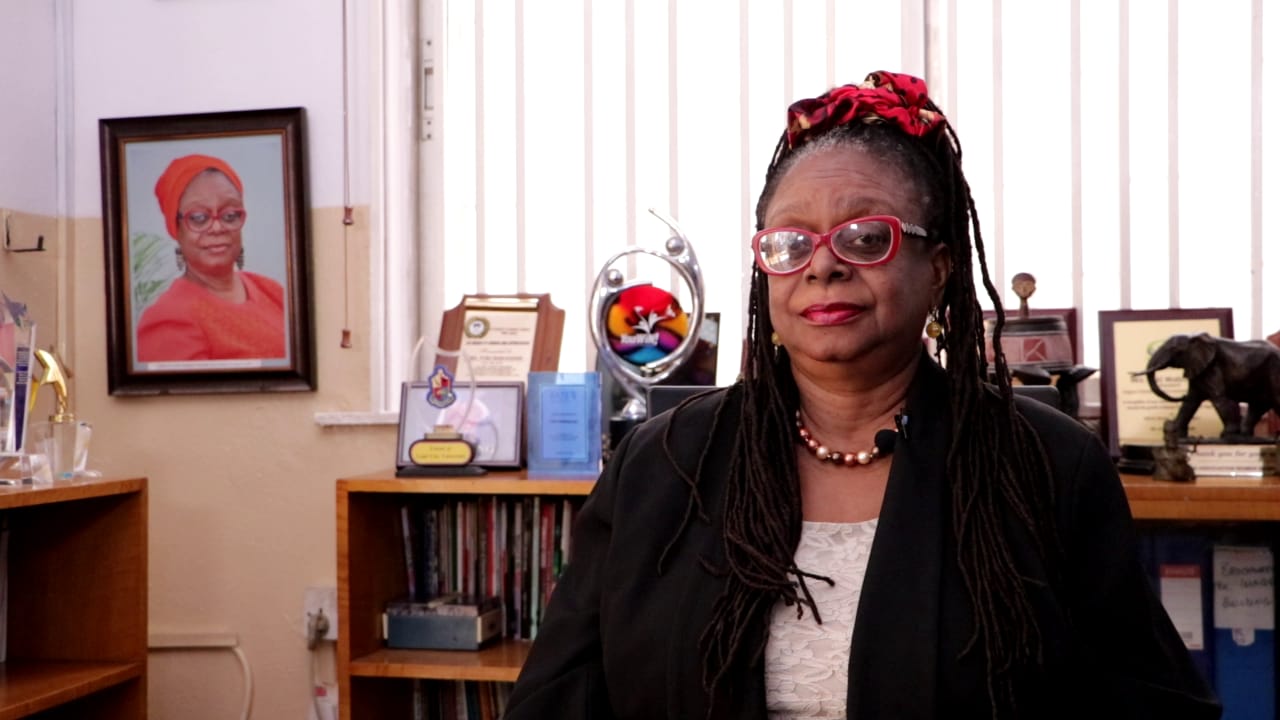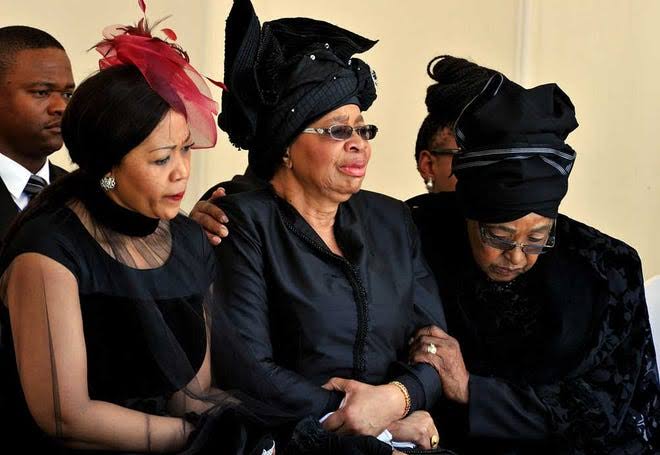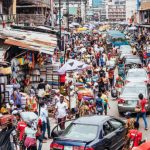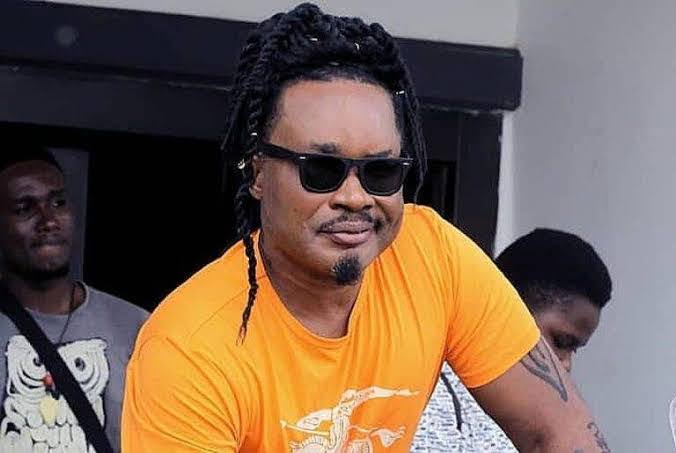Former President, Lagos Chamber of Commerce and Industry (LCCI) and a seasoned business development consultant, Toki Mabogunje in this exclusive interview with Prime Business Africa’s VICTOR EZEJA and DAVID OBIESESAN, says Nigeria needs a broader ecosystem for startups to boost the economy. She also speaks on the country’s rising debt profile and how to mitigate it.
Nigeria’s SMEs and startups in the post-COVID-19 pandemic
Join our WhatsApp ChannelIt was almost like there was no hope for SMEs in Nigeria 22 years ago, when I started business development services. When I say then, that we are helping SMEs, people would ask what is SMEs? It didn’t have a definition in Nigeria in the year 2000, but Obasanjo was able to challenge the banks to start creating funding schemes for SMEs. There were a lot of funding schemes that failed because people didn’t know how to access it, or understand who the beneficiaries were.
The Bank of Industry (BOI) came into place and started having all kinds of programmes that have grown over time.
The situation of SMEs in Nigeria today is a hundred times better than 22 years ago. However, there is a lot of challenges in the sector that still needs to be resolved. There is insufficient support or access to funds for startups. It is in startups that you find young people. There is really a need support the sector with interventions like capacity building, infrastructure upgrade and funds to drive it to viability. So, the startup ecosystem needs to be broadened and supported.
Another factor to look into is about businesses that depend on infrastructure, especially manufacturing. One of the reasons Nigeria is not a big manufacturing hub that it should be is poor electric power supply, bad road networks and poor water system. If you set up a factory you must get your own water system. In such a situation, a business that N3 million could have started, would now require about N25 million to start it. We need infrastructure for our manufacturers to do well.
The other area is SMEs. The more large size companies you have in an ecosystem, the more SMEs would thrive because the large companies get their raw materials from SMEs. When they produce, SMEs also take their products. So, SMEs are needed to make the market and the supply chain generally, to function. We need to encourage more large companies to thrive, and also encourage foreign investments to come so that Nigerians and foreigners can work together to expand. I believe that this country can feed the West without blinking, but large quantity of food are wasted over time in the course of processing and distribution because of poor storage facilities and bad roads.
Nigeria, indeed has entrepreneurial people. Some international statistics indicated that Nigerian women were the most entrepreneurial in the entire world. So, there is so much that is working for us, and I think that what we need to do is to open the space. Nigerians are not looking for a handout, what they need is the space and they will do the rest. People are really entrepreneurial, so for us as a country, it’s not for lack of human assets or the passion or desire to progress, it is about lack of good policy, good governance around economics, and making the environment conducive so that all Nigerians can prosper, no matter what positive endeavour they decide to engage in.
Within my business development work, I continue to engage with SMEs. I do get consultancy jobs from big business organisations but I don’t take up those jobs not because I don’t want money, but honestly, being able to work with smaller businesses so that I would be able to say that I was part of that story actually gives me more satisfaction. So I think that I have found my life’s purpose, and my life’s purpose is to be able to enable others to reach their full potential.
The funding system for SMEs in Nigeria?
22 years ago, one couldn’t go to a bank for loan but now there are various intervention funds. CBN is being forced by the situation of poor access to funding to create intervention fund schemes. CBN is meant to be a regulator watching what the commercial banks are doing, and try to get them to do the correct thing whenever they err. The commercial banks would tell you it is customers’ or depositors’ money they are using, so they have to be careful. There are two sides to it. Banks find SMEs very risky, not just Nigerian banks, but globally.
However, developed nations around the world have set up systems to reduce hedge risks. They have credit bureaus. In Nigeria, we don’t have those systems in place that make it possible to make quick decisions about extending credits to people who want to borrow. Secondly, our financial system is not deep enough, so we don’t have long-term funding system. We need to start developing a long-term credit system. Our past presidents from Obasanjo down to Buhari, have tried to do so by engaging with the funds from pension and insurance. They are trying to create a situation where they can offer money over a long term, but because we are basically a trading nation, consumer and trading, we only need to turn over money in may be two to three months. Everything about them is on very short basis, so the longest you can get is may be one year. I think the problem is that we are not productive. It’s an interesting thing that a lot of our SMEs are contributing to domestic GDP, but what I think that is not happening is export. It is only oil that is attracting most of the dollars. If agriculture and mining were earning, then services as well, like accountants, lawyers, all these various endeavours of life were all earning foreign exchange, we would have such a buoyant economy that we would be able to offer credit for a much period of time. That’s the constraint we have in the country. As a business development consultant, I would continue organising sensitisation campaigns on the need to strengthen SMEs in the country to contribute in boosting the economy.
Your take on Nigeria’s economic outlook today, looking at the 2022 budget
Within the last two years, the debt stock has really spiraled very fast and borrowing increased. When I was president of LCCI, with the COVID-19 and everything, we were able to pay attention to issue of debt. In the chamber of commerce, we have a unit called the Economics and Statistics Committee, made up of the best brains in various sectors. They come together to discuss the economy. We have been worrying about this that borrowing cannot just be the only answer to meeting our economic needs.
We came up with some ideas we thought were brilliant, sent out memos to the Lagos State governor, the president, vice president, advising them on what needed to be done. Firstly, we stated that there are four types of assets that we are not really exploiting to the greatest. One of them is that the Federal Government has assets all over the country, but they are lying idle. There are so many islands of assets that need to be commercialized. If we commercialize them, we can attract foreign investments, even domestic investment, to develop those things. That is another way for the government to be able to raise revenue. So, instead of looking at debt, they would be looking at equity. This would attract investments into these assets.
However, the limitation is the fact that we don’t even have a register of these assets, we don’t know how many assets we have, where they are, their addresses. So, the first thing that needs to be done is to set up a national register and register all those assets. It should be done both at the national and state levels. Within the states, all properties and assets owned by ministries and parastatals that are lying idle need to be commercialized. That’s one around property.
The second one has to do with us. We the people are the government’s biggest assets. All these Nigerians who are living the country and going abroad for greener pastures should not necessarily be seen as those going away and abandoning us to our fate. A lot of countries have turned this mobility of human beings, into something that profits the country. In countries like India and Philippines, it is a deliberate policy now by their governments to actually earn from their citizens in the diaspora. So, we are saying that the Nigerian government should adopt that policy. But to adopt that policy, the government has to actually invest in the education of the youths. We must make our youths work-ready for the future, so that they go with our blessings to Canada, UK, Australia, or wherever they want to go. During lockdown, the Central Bank of Nigeria started appealing for diaspora funds, asking Nigerians who are outside to send money home so they can be used to develop the country. This is another avenue for getting money that is not debt, but equity.
Thirdly, the Nigeria Stock Exchange needs to be made more digital. We need to have a portal so that wherever one may be in the world, he or she can invest in Nigeria. For instance, if they want to privatize an aspect of mining, like gold, you can invest in Nigeria from wherever you are in the world if you have interest in mining, by doing it virtually and the money comes in here, we use it and set up something, money goes out, investors get their cut, government takes their taxes and levies, and everybody benefits.
These are some of the things we had sent to government as suggestions on what need to be done. I see some signs that they have taken up something, I hope they will take all of them because all of them will actually serve us better. We are all concerned about this rising debt.
Comparison of Nigeria’s debt stock with other countries
We don’t need to compare with other countries like America. America is producing but production in Nigeria is very low. The country need to engage in more productive ventures. If we do it that way, we become even more complacent by relying constantly on borrowing to finance expenditure. The situation is clearly not sustainable.
Your take on the e-Naira launched by CBN last year in Nigeria?
Money is just a means of exchange, in ancient time, they were using cowry shells, at some point trade by barter. It is just a means of exchange; there is no way that money is not going to become digital one day. So this is the beginning, and I think that what the Central Bank is trying to do is to get ahead. It is good that after what happened during the ENDSARS, and the fact that people can mobilize finances so quickly outside of the government framework, was really a warning bell to everybody around the world. Our own central bank is not the only central bank that is issuing digital currency. It’s how they now decide to use it that is my concern.
I think it can be an avenue for inclusiveness. The most rural man or the most rural woman can actually with the use of phone, have access to finance that they never had before. So it can be used for a lot of good. So if we move our thoughts away from the negative aspects, there is nothing without a negative aspect, and start to use it for good, make our country more inclusive economically, empower the people in the rural areas, with this electronic currency. May be electronic currency will enable us on-board digitization faster, because right now we are moving slowly about it. A lot of unicorns, the guys who are in fintech, have been doing fantastic things with digital technology. Digital currency is the way to go, but how it’s used is what matters.
I am saying that there are many good things about digital currency and one of them is financial inclusion. This is why the fin techs have such a big reputation because of what they have done. They have been able to touch those people that banks have not yet touched. They are making life easy for the youths of the country. That is where they have access, where they are able to deal, lay their hands on resources and move their life forward. I think digital is the way to go.
Experiences and Key achievements as third female president of the LCCI
Talking about my experience, remember that my election in 2019 was just three months before the COVID-19 lockdown. I was in an economic situation that has not happened for over a hundred years. So I didn’t even have prior precedent that I could work up to and say hey, what did you do in your time? All those ones were already dead. There was no point of reference and no one to advise me on anything. The entire world was in confusion. Everywhere was locked down, businesses were disrupted, SMEs were dying by the second, it was very tough. So I call mine a COVID presidency. After lockdowns in Lagos were becoming much and I think I just have had two weeks really being disturbed by the whole situation, one day I woke up and realized that in every challenge there is an opportunity. Then I asked myself what is the opportunity here? with all of these disruptions, what can we do? From that point up, we didn’t move back. So I did a lot of things that might not have happened had there not been COVID.
I applied for and we got ISO certification, I spoke with the ITC which is a branch of WTO and got them to do an assessment of our world ranking as being at the top of chambers of commerce like us around the world. We did complete digital transformation; we refreshed our logo; did high capacity training of our staff, so they could learn to engage virtually because everything was now virtual. We had a lot of virtual trainings, and then our entire sectors were mobilized and on-boarded. We were the first to carry out virtual exhibitions in Nigeria. I think that what all of those activities did for us at Lagos Chamber of Commerce is that we were the voice that most people heard, and we were the heard of the pack. So we found that our engagement with the government became a little bit easier. We could have a discussion with the president or vice president on Zoom in what would have warranted us going to Abuja. We spoke with governor and all that. Government relations became better with the technology. I grew the sectoral grouping to include some newer businesses that we now have. We created a group for e-commerce, and the likes of Jumia joined us. I created a group for creative industries, so all those in the creative now have a group, and then created a group for maritime. Maritime is a very old industry but for some reason, we didn’t have a maritime sector. We have the logistics, where all those shippers carry goods back and forth but the real maritime was not there.
So, it was a time of great beginnings, expansion, on-boarding technology, and getting a much larger audience that included the youth – which I think was the most exciting thing for me. Young people started to know what the Lagos Chamber of commerce is all about.
Economic viability of the arts sector, especially in Nigeria and Africa
I published silently and quietly for many years, then I eventually co-authored with my son, and published it. It went on stage and was supported by the British Council. That’s how I began to slowly get embedded in the cultural and art sector in Nigeria. Then I started to do my business development there because when you are an artist, ideally you should focus on your arts, keep producing, and other people should manage you. You shouldn’t have to worry about the money side, because you have a manager, which is why singers have managers. But the environment is not yet developed to that level, so, sometimes the artist has to be his own manager and worry about marketing, and where money is coming from and so on. The most fantastic thing about Nigeria is that despite the challenges I have alluded to, for businesses, the creative sector has risen above her challenges. Despite the challenges, look at our artists, music sector, and film. Theatre is trailing behind but I am sure they would catch up.
Because the sector is booming, I think taking after Bollywood, the banks and government are now beginning to pay attention. We are beginning to understand that as a people, not only are we entrepreneurs, but we are creative and very artistic. We are slowly coming into our own but I think that God has to have a deliberate policy and deliberate intervention to enable the creative sector to actually expand and grow very big. And they have done very well with what they have achieved so far but they need much more support. We need many more of our younger generation, who are also feeling that they have a carrier and a future ahead of them. They should be feeling that the world is their oyster and that all it takes is a little bit of hard work they would get there.
Looking at your career trajectory, what is fuelling your drive?
I am a lawyer by profession and had part of my career working for the Federal Government of Nigeria. I became a senior state counsel and then resigned to go into the private sector. I worked for government for nine and half years. I went into broadcasting and was in it for about eight and half years. I worked with the local broadcaster, Minaj Media Group. We grew the company from getting license into the conglomerate that it became. I eventually became president of the American subsidiary. At that point, I decided to come back home and set up a business development consultancy firm. I was already concerned about the challenges that exist in our environment when you see very sincere, passionate and determined Nigerian men and women who want to set up a business and grow them. The challenges were enormous. So I just thought of it. You know SMEs don’t have the resources to pay the big companies like PriceWaterhouseCoopers, Anderson or KPMG, in terms of the money they need for consulting. So I set up my business development consulting firm, Toki Mabogunje & Co in January 2000. We are 22 years old now.
Our entire purpose is to build SMEs into the economy. So while doing this, I decided that more value will be added by actually getting involved in business associations. So, I started to get involved in Manufacturers Association of Nigeria, and various organisations including women organisations, like the Network of Entrepreneurial Women. In that way, the more active I became, the more I was given the mantle of leadership; I began to work on committees and lead programmes.
In December 2019, at the Lagos Chamber of Commerce and Industry (LCCI) I became the third woman to lead as president.
How did you combine work with family life and be able to cope?
There are a number of things I did as a young person. My children are spaced far apart. So I didn’t have that headache. My husband is an absolute admirer and supporter of all that I do. I call him my chief marketing officer. We have a marriage where we sacrifice for each other. When he went set up his business I stayed back in government and gave him support so that he would be able to establish the business and get it strong. When I wanted to leave government service, he has sort of stabilized with his business. He now also gave me the support I needed to move into the private sector. It has been back and forth like that. I know that every time I achieve something or move to another level, my husband is one of the proudest people. Having that kind of support is critical, whether you are a man or woman.

















Follow Us